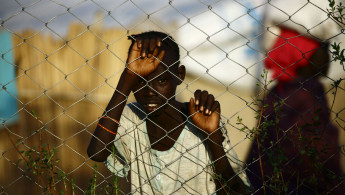US slaps sanctions on senior South Sudan officials
Tens of thousands of people have been killed in South Sudan's war while millions have fled the country. Efforts at peace deals have repeatedly failed and there is no end in sight to the conflict.
Washington was once South Sudan's key foreign sponsor after it won its independence from Sudan in 2011 but has grown frustrated by the country's descent into chaos and fighting.
The latest measures target information minister Michael Makuei, who is in particular accused of having "engaged in or been complicit in" attacks on the UN mission in South Sudan.
The feared former head of the army, Paul Malong, is also placed on the sanctions list, which is updated periodically by the US Treasury.
South Sudan's President Salva Kiir sacked Malong in May, but before that he was accused of being behind the deadly clashes that erupted in the capital Juba in July last year.
Senior military figure, Malek Reuben, the former head of logistics for the Sudanese Peoples' Liberation Army (SPLA), was also placed on the list, along with three private firms he controls.
The US treasury warned US banks "that certain South Sudanese senior political figures may try to use the US financial system to move or hide proceeds of public corruption."
US citizens are barred from doing business with individuals on the sanctions list and any assets they hold in areas under US jurisdiction can be frozen.
The US State Department spokesman Heather Nauert warned that further measures may follow if South Sudanese leaders do no engage in the peace process.
"Six million people in South Sudan -– half of the population -– face life-threatening hunger while more than four million people have been displaced from their homes, including two million refugees," she said.
"This is a man-made crisis, and one the Government of South Sudan can stop."





 Follow the Middle East's top stories in English at The New Arab on Google News
Follow the Middle East's top stories in English at The New Arab on Google News

![Israeli forces ordered bombed Gaza's Jabalia, ordering residents to leave [Getty]](/sites/default/files/styles/image_330x185/public/2176418030.jpeg?h=a5f2f23a&itok=_YGZaP1z)
